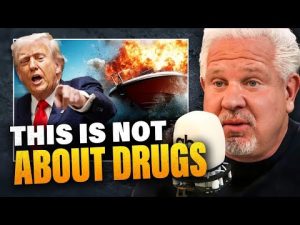It seems like late-night TV host Jimmy Kimmel has found himself at the center of a controversy once again. After a four-show suspension, he’s back on air, but not everyone is thrilled about it. Several affiliate stations have chosen not to carry his show, all because of a rather reckless statement he made. Kimmel had falsely implied that a violent incident involving Charlie Kirk was somehow connected to the MAGA movement. Apparently, that’s a line that many think he crossed without apology.
Kimmel made a return statement, seemingly trying to smooth things over without actually saying the magic words, “I’m sorry.” Instead, he chose the route of explaining motives and trying to dodge the consequences of his previous remarks. According to some very understanding media folks, this effort showcased Kimmel’s humanity and supposed responsibility. They even went so far as to call him a public educator. One might chuckle here, considering education is generally associated with facts and accuracy, something Kimmel missed with his comment.
The conversation turned to Kimmel’s ratings and the broader implications of his return to the airwaves. Jimmy’s show isn’t exactly top of the charts right now, trailing behind simpler, cheaper-to-produce programming like reruns of “Family Feud.” While Kimmel pulls in a hefty salary and has a sizable crew behind his show, the business sense of keeping him on air might be nearing its expiration date. With pressure from advertisers and viewers who aren’t too happy with his recent antics, one has to wonder how long he’s got left in this “show business” game.
The irony here is palpable. Liberals, who once championed censorship when it suited their agenda—think FCC squabbles and tech company pressures—are now singing songs of the First Amendment. When tables turn, suddenly everyone’s a free speech advocate. The question becomes, why do these network shows, operating on public airwaves, lean so predictably far to the left? It seems like a one-way street, and for those favoring an even playing field, this just doesn’t sit right.
In the end, maybe this is all just part of the wider puzzle of media bias and network politics. Kimmel’s gaffe, and the reluctance to properly address it, sheds light on the broader issues of accountability and the influence of political leanings on public airwaves. As networks with these biases continue to operate, we see them make choices that raise questions about their commitment to balance and truth. In the era of endless information and entertainment choice, perhaps it’s time audiences demand more than just a chuckle from the same old echo chamber.







